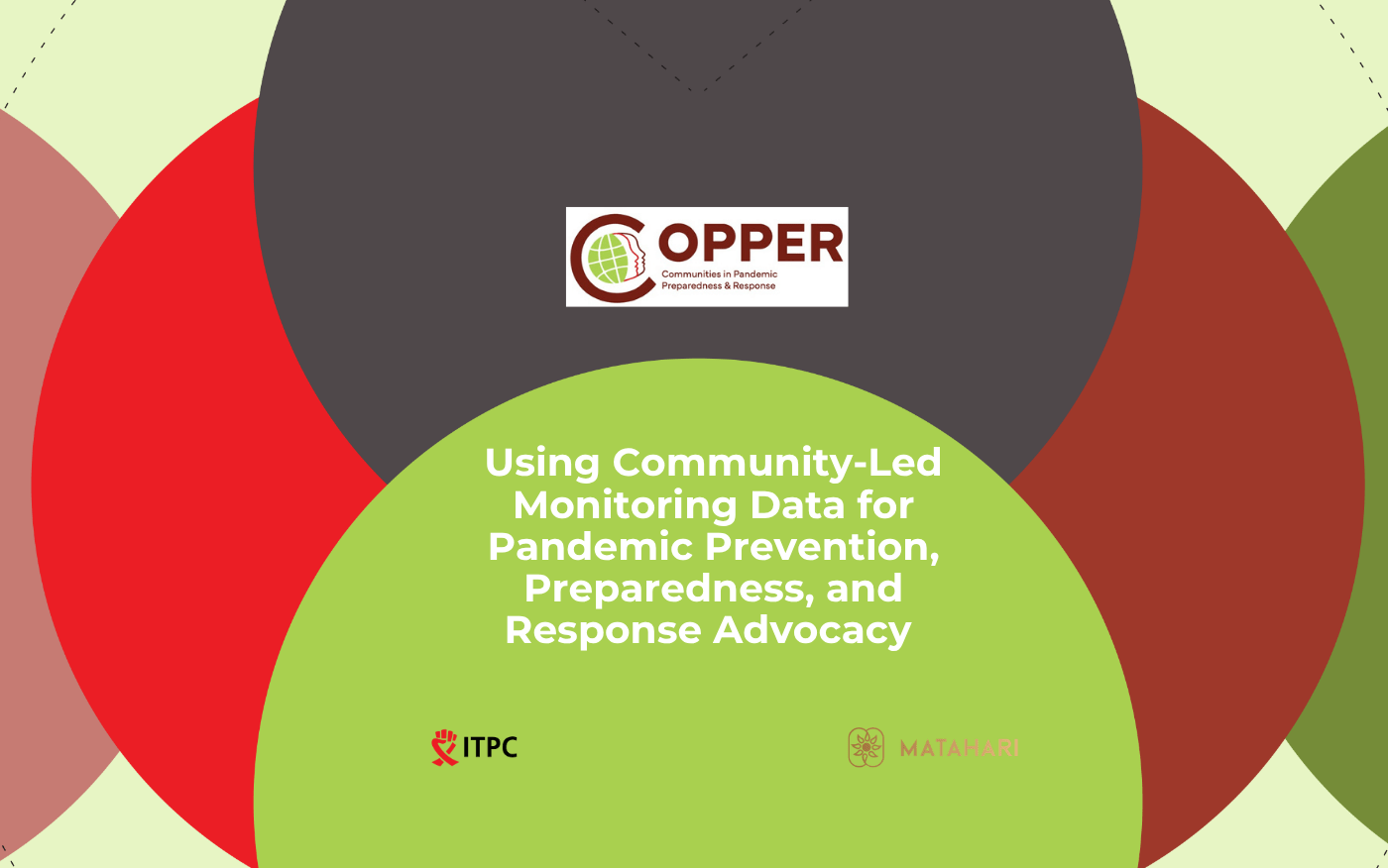The COVID-19 pandemic reinforced painful truths about our global health system. Communities across the world experienced inequities in access, disruptions in essential services, and exclusion decision-making processes. Similar to other public health threats, community-led organizations have had to advocate for their human right to participate in national and global coordination mechanisms. We know that communities must be at the center of pandemic preparedness and response. Community data and expertise remain an essential part of pandemic preparedness, prevention, and response (PPPR).
To facilitate effective collaboration between community-led organizations and the global health PPPR system, ITPC and Matahari Global Solutions with support from the Global Fund have developed four new resources (in English, French, Spanish and Portuguese):
- Toolkit: Using Community-Led Monitoring Data for Pandemic Prevention, Preparedness, and Response Advocacy, a powerful resource designed for developing Community-Led Monitoring (CLM) to influence pandemic policy and practice.
- Community Guide: Using Community-Led Monitoring Data for Pandemic Prevention, Preparedness, and Response Advocacy, a guide to identify the who, what, where, when, why, and how in CLM-PPPR advocacy.
- A PPPR 101 Workshop Toolkit, a full set of all the information you need in English and French to run a workshop for your community to learn about PPPR and develop your CLM-PPPR project.
These resources bridge the gap between HIV/TB/malaria work and PPPR, offering practical tools for understanding what PPPR is, how PPPR and CLM connect, who the stakeholders of PPPR are, and developing advocacy for data-driven decision-making. Each of these resources is based on real-life experience of community organizations that have worked through the pandemics of HIV, TB, Ebola, Mpox, and COVID-19, including the monitoring of health systems, documenting access gaps, and influencing pandemic policy from the ground up.
The next pandemic isn’t a question of if, but when. And when it comes, communities will be ready – not just to respond, but to lead.
